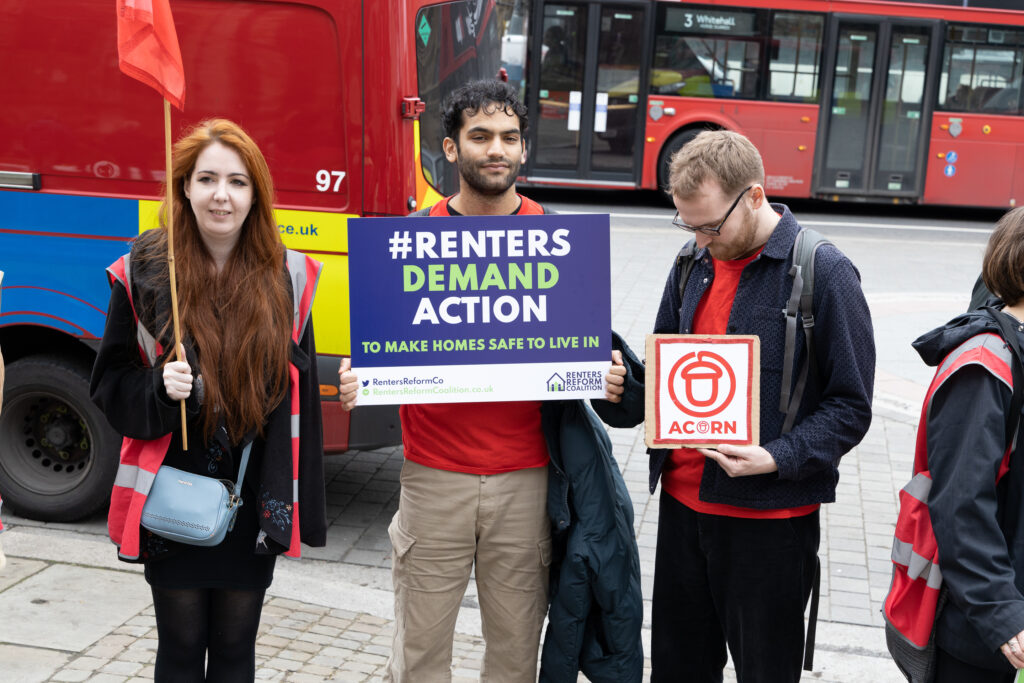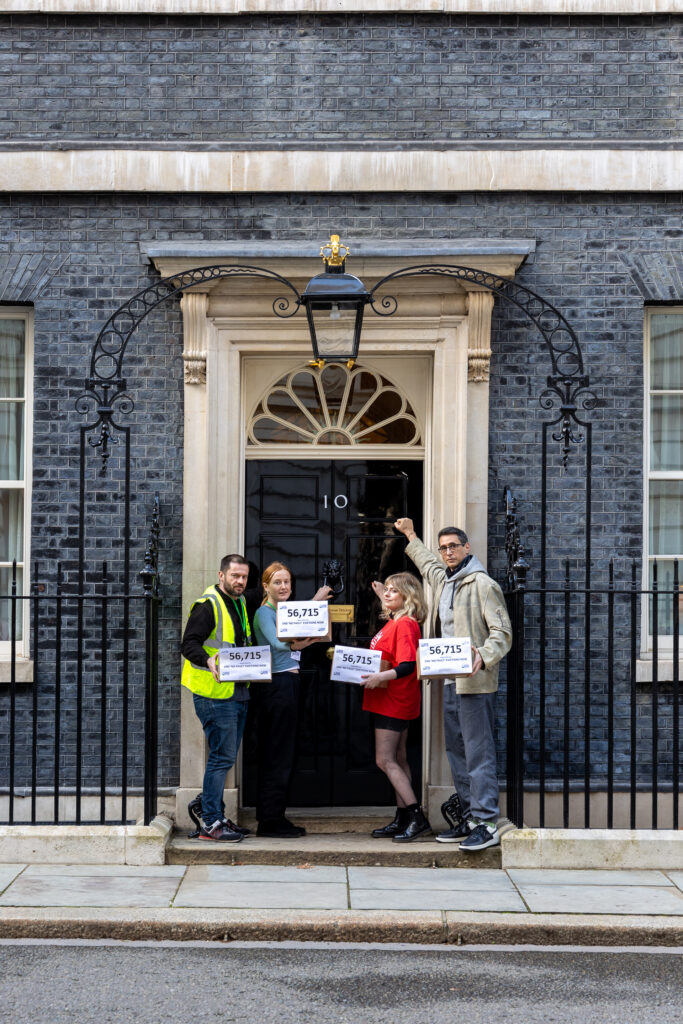by Joshua Davies, programme manager for transforming the private rented sector
At a renters’ reform rally earlier this week, new housing minister Rachel Maclean committed to bringing forward the much-anticipated Renters’ Reform Bill before autumn 2023.
Organised by the Renters’ Reform Coalition, the renters’ day of action was held at Westminster on Tuesday 21 March to draw attention to the desperate need of tenants. This was one of the biggest coordinated political actions ever taken by private renters, with hundreds of renters from across the country coming together to call for the government to bring forward the promised Renters’ Reform Bill as swiftly as possible.
After meeting at Church House in Westminster Abbey’s grounds, renters made the short trip to parliament to meet with their MPs, asking for their support to bring forward the Renters Reform Bill and to make it work for tenants. A petition with over 50,000 signatures was handed in at 10 Downing Street. Renters also took part in sessions about how to build collective power, understand their rights, and campaign for housing reform.
The day ended with a session with housing minister Rachel Maclean, who faced some tough questions from renters across the housing movement. The minister was clear on the need for the Bill to work properly for renters and made the clearest commitment yet to bring forward the Bill before the autumn, demonstrating the power of collective action.
The Renters’ Reform Coalition is a group of 20 leading housing organisations, of which the Nationwide Foundation is the funder and an active member. Members of the Foundation’s team were part of the rally, helping to organise the event and speaking to MPs and the media.
The commitment given by the minister on Tuesday is excellent news for renters across England, and a real demonstration of why we’re proud to fund organisations like the Renters’ Reform Coalition. The longer we wait, the longer private renters face living in insecure, poor quality or unaffordable homes. Renters and landlords across the sector agree that reform is needed so we look forward to seeing the Bill made a reality as soon as possible.
If you’ve browsed the rest of our website, you’ll know that the Nationwide Foundation’s charitable vision is to make more decent, affordable homes available for those in need. So why do we consider calling for private rented sector reform one of our biggest priorities for 2023?
The PRS is big, but often doesn’t work for private renters
The private rented sector now houses a fifth of the UK, with people from all walks of life calling a privately rented house their home. But often, renters can be left feeling insecure or living in bad conditions, due to the ability of landlords to evict tenants without giving a reason. This is called a ‘no-fault’ or section 21 eviction.
The existence of no-fault evictions means renters might have to move many times, leaving them unable to put down roots in an area. Research has shown that insecurity in the PRS has a significant effect on the wellbeing of renters. No-fault evictions are also the leading cause of homelessness.
Privately rented homes are far behind others on quality
The PRS has the worst conditions of any tenure, with nearly a quarter being classified as ‘non-decent’ and one in ten having a problem with damp. Not only this, but it’s often hard for tenants to get repairs done. Because of the existence of ‘no fault’ eviction, renters can be scared to ask for repairs for fear of eviction by their landlord. And if a landlord doesn’t complete a repair, renters must turn to local authorities who often have limited budgets to enforce the law.
We’ve recently seen the terrible case of two-year-old Awaab Ishak in Rochdale, who died after exposure to mould in his social rented property. The government are taking steps to improve conditions in social rented housing, but conditions in the private sector are just as bad, and reform is needed there too.
So what’s next?
The long-promised Renters’ Reform Bill is coming. Alongside this, the government has consulted on extending the social rented sector’s Decent Homes Standard to the PRS, which would drive up standards. Once the Bill is brought forward, we’ll carry on working with the Renters Reform Coalition to make sure it works for renters.
It was inspirational to see so many renters from across England determined to work together to achieve change. Amongst the advocacy and action on the day, I was moved to hear the stories of many real renters. People spoke about losing their homes with only a month to scrape together a deposit and find a new one, in the midst of a cost-of-living crisis. We heard from people whose mental health suffered because they weren’t able to maintain a sense of security or consistent access to medical help, due to repeated no-fault eviction. We heard about children’s schooling disrupted, families pushed into homelessness and people silently putting up with hazardous conditions because of the fear of speaking up.This is why renters are so desperate for reform: because the sooner the government changes the system, the more cases like this will be averted and the more lives will be steadied. Every day counts.
Find out more about the Renters’ Reform Coalition online.



